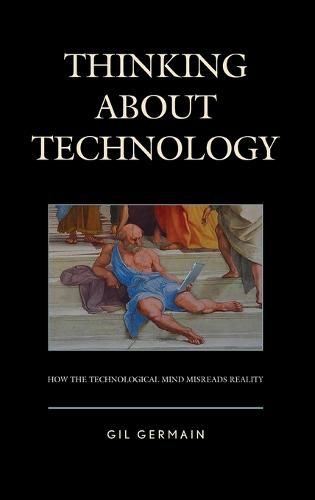Readings Newsletter
Become a Readings Member to make your shopping experience even easier.
Sign in or sign up for free!
You’re not far away from qualifying for FREE standard shipping within Australia
You’ve qualified for FREE standard shipping within Australia
The cart is loading…






The world we make reflects the way reality is perceived, and today the world is perceived primarily in technological terms. So argues Gil Germain in Thinking About Technology: How the Technological Mind Misreads Reality. Given the connection between perception and action, or thinking and doing, Germain first highlights the central features of technological worldview to better understand the contemporary drive to master the conditions of human existence. He then boldly proposes that the technological worldview seriously misreads the nature of the world it seeks mastery over, and shows how this misinterpretation invariably leads to the technologically-related challenges currently vexing the contemporary social order, from the drift toward a posthuman future to the anti-globalization backlash. Germain closes Thinking About Technology by articulating an alternative worldview to the technological perspective and illustrating how this re-reading of reality might help us inhabit the technological landscape in ways better attuned to the human condition.
$9.00 standard shipping within Australia
FREE standard shipping within Australia for orders over $100.00
Express & International shipping calculated at checkout
The world we make reflects the way reality is perceived, and today the world is perceived primarily in technological terms. So argues Gil Germain in Thinking About Technology: How the Technological Mind Misreads Reality. Given the connection between perception and action, or thinking and doing, Germain first highlights the central features of technological worldview to better understand the contemporary drive to master the conditions of human existence. He then boldly proposes that the technological worldview seriously misreads the nature of the world it seeks mastery over, and shows how this misinterpretation invariably leads to the technologically-related challenges currently vexing the contemporary social order, from the drift toward a posthuman future to the anti-globalization backlash. Germain closes Thinking About Technology by articulating an alternative worldview to the technological perspective and illustrating how this re-reading of reality might help us inhabit the technological landscape in ways better attuned to the human condition.